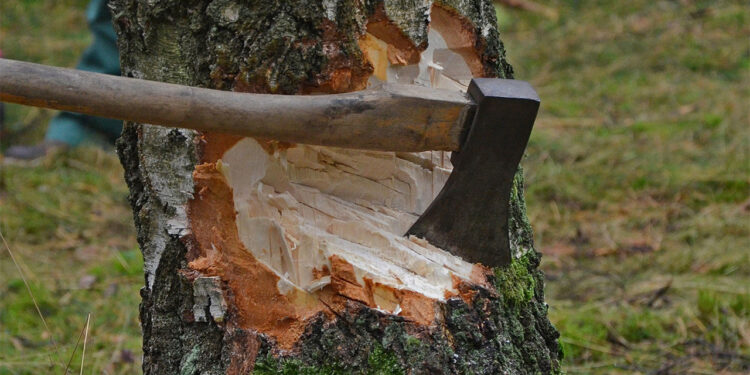Andhra Pradesh High Court Takes Action on Tree Preservation
Directive to Formulate a Committee
The Andhra Pradesh High Court has issued an order instructing the Chief Secretary of the state to set up a committee aimed at investigating the removal of trees in government-sponsored projects. This initiative seeks to propose strategies that could mitigate tree felling during such undertakings. The ruling originated from a public interest litigation (PIL) submitted by Asmad Mohammed Shaik, a 20-year-old student, who raised concerns regarding the rampant deforestation conducted by governmental agencies under the pretext of development.
Protecting Ecological Balance
In his petition, Shaik argued for urgent measures to safeguard the already compromised ecological landscape. He urged that authorities should refrain from indiscriminate tree cutting and instead consider alternative approaches like translocating trees, which may be accomplished using specialized machinery or manual methods. The petitioner emphasized that unauthorized deforestation infringes upon fundamental rights protected by Articles 14 and 21 of the Indian Constitution and violates the National Action Plan on Climate Change (NAPCC), established by central authorities in 2008.
Shaik contended that India’s commitment under the NAPCC aims to enhance forest cover from 23% to an ambitious target of 33%. To fulfill this promise, he requested intervention for relocating rather than removing trees entirely.
Addressing Environmental Concerns
The division bench — composed of Chief Justice Dhiraj Singh Thakur and Justice Ravi Cheemalapati — recognized that this PIL addresses critical environmental issues relevant not only within Andhra Pradesh but globally as well. They noted ongoing threats to ecology worldwide due to detrimental practices surrounding deforestation.
The bench underscored the necessity for a comprehensive policy mandating tree translocation instead of simple clearance whenever infrastructure developments arise—be it new roads or governmental buildings. They remarked, “In contemporary times, one cannot claim that suitable machinery is unavailable; while it may involve significant expenditures, a policy decision must be made.”
Implementation Timeline
Consequently, they instructed Chief Secretary — identified as respondent No.1 — to establish this committee tasked with examining current practices and recommending actionable alternatives aimed at significantly reducing or entirely preventing tree felling associated with government-funded initiatives.
The Chief Secretary was granted discretion in selecting additional members for this committee—individuals possessing relevant expertise—who will provide insights into best practices in environmental conservation. A report outlining their findings is expected within three months, with proceedings rescheduled for March 12, 2025.
Case Reference: Asmad Mohammed Shaik vs. The State Of AP & Others
Petitioner’s Counsel: Basheer Ahmed
Respondent’s Counsel: General Administration GP
For further details on this ruling and its implications for local environment policy-making efforts click here [link].






